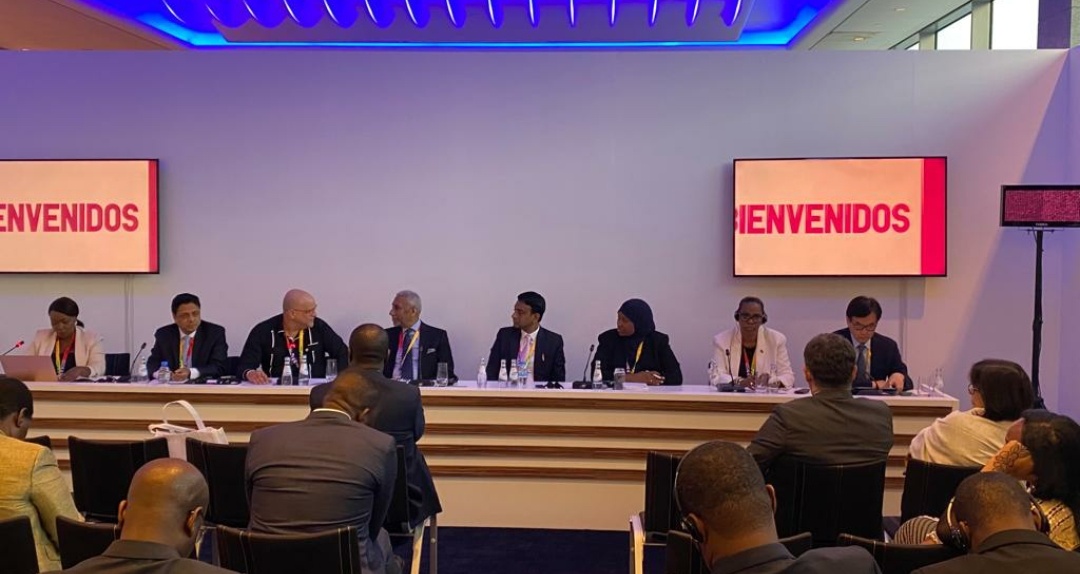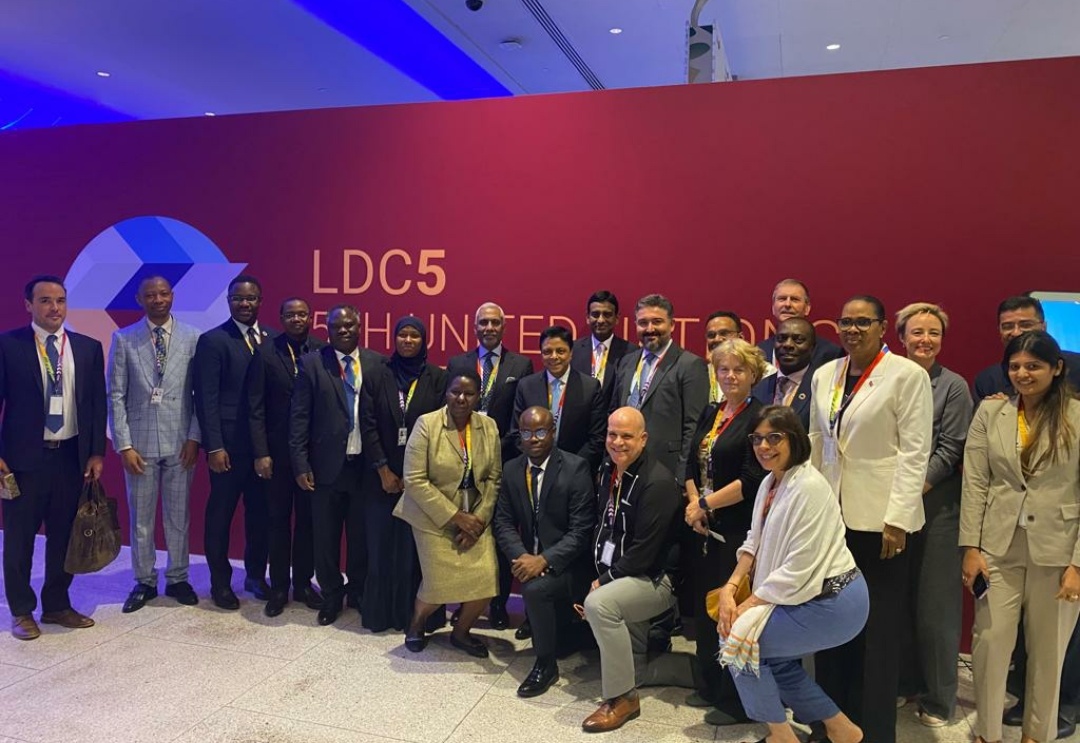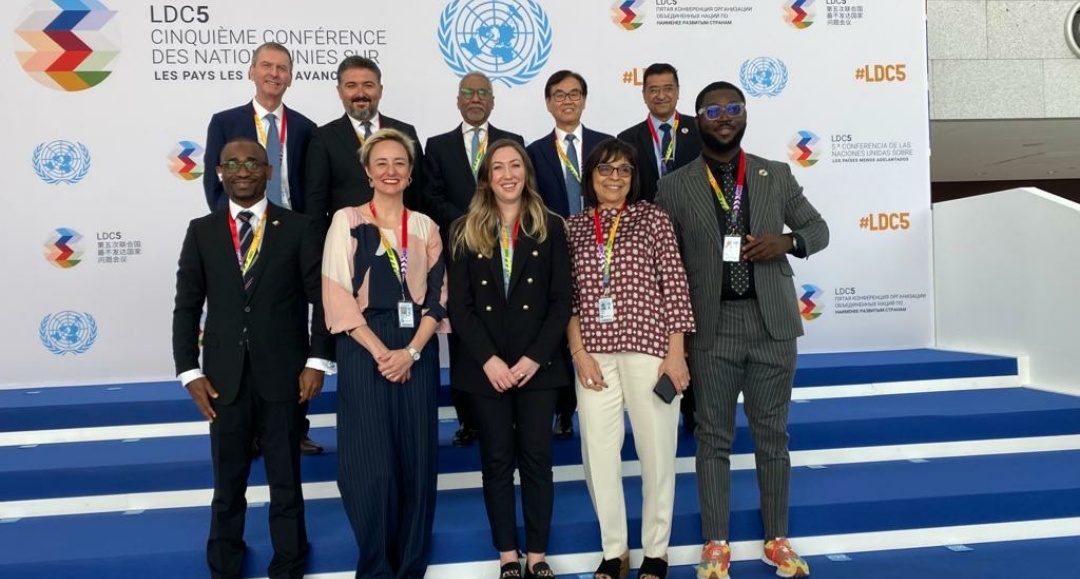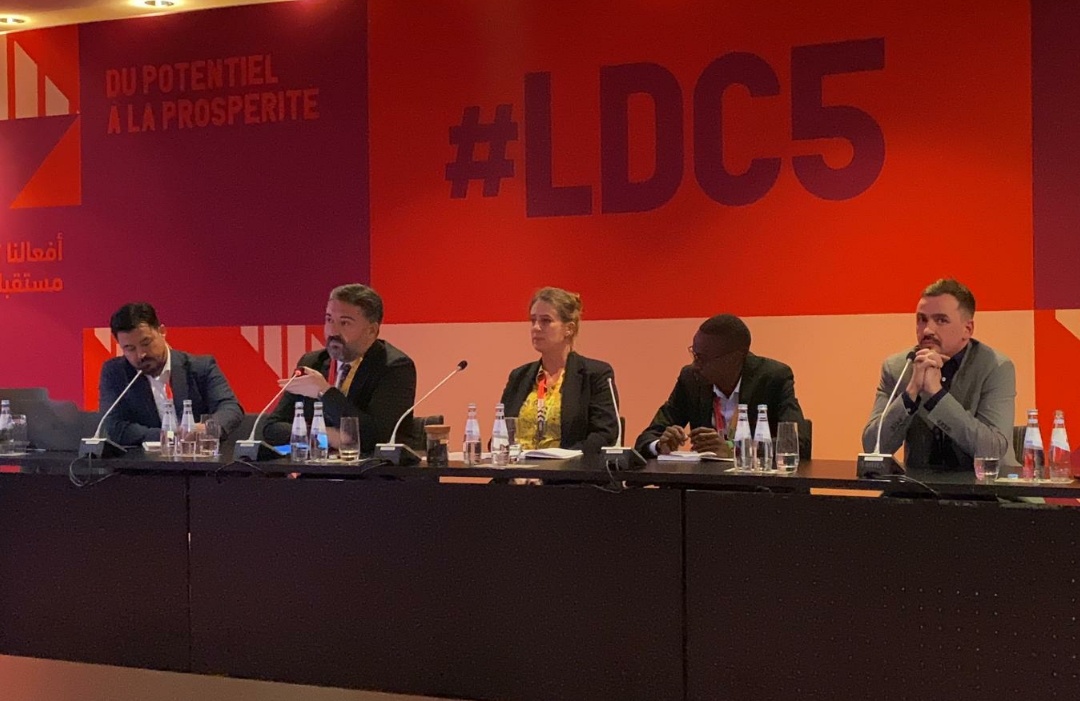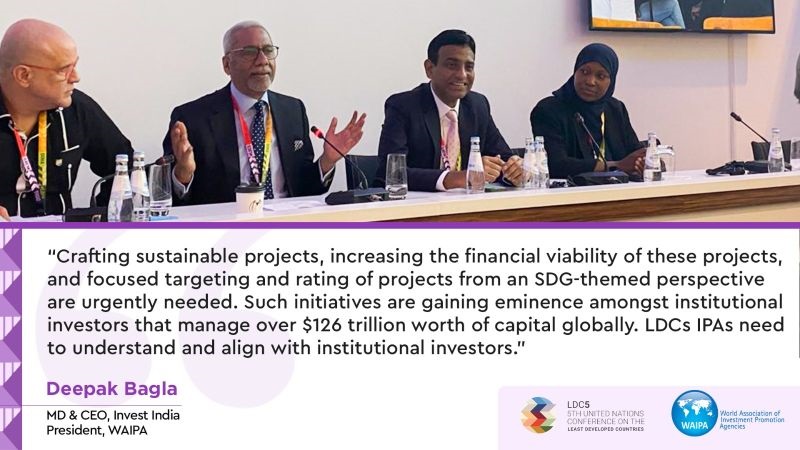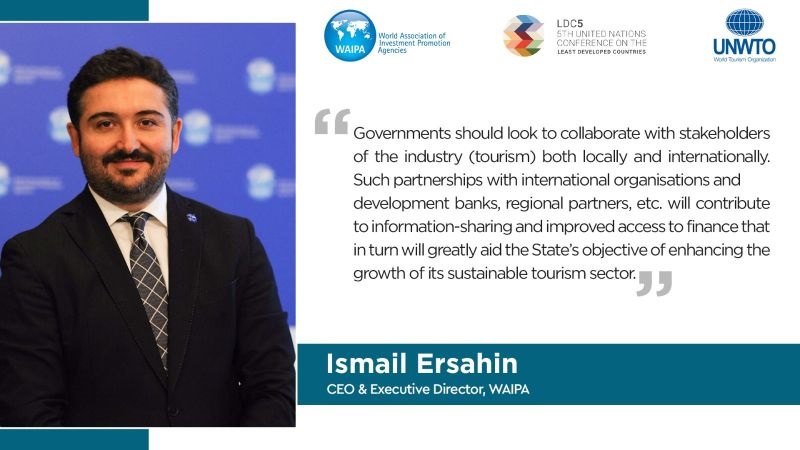WAIPA actively participated in the 5th UN Conference on Least Developed Countries (LDC5) held in Doha, Qatar from the 5th of March to the 9th of March.
The organization collaborated with the International Solar Alliance (ISA) to organize an event titled, “Opportunities and Challenges in Doing Solar in LDCs” on the 6th of March. The session was planned by WAIPA with the objective to equip the participating IPAs representatives and other government representatives with the relevant know-how and best practices required to have a positive impact in the solar energy sector in the LDCs.
The welcome addresses were given by Mr. Deepak Bagla, President, WAIPA, CEO & MD, Invest India; Mr. Escipión Joaquín Oliveira Gomez, Assistant Secretary-General, OACPS and Mr. Joshua Wycliffe, COO, International Solar Alliance.
Furthermore, the distinguished speakers on the panel were Mr. Ratnakar Adhikari, Executive Director of the Enhanced Integrated Framework Executive Secretariat at the World Trade Organization; Ms. Nadjati Soidiki, CEO, Agence Nationale pour la Promotion des Investissements (ANPI Comoros); Ms. Fatima Léonne C. Prophète, Director General, CFI Haiti and Mr. Jalel Sager, Co-Founder and Board Chair, New Sun Road.
These experienced speakers coming from diverse backgrounds and various forms of institutions such as multilateral organizations, national agencies, and the private sector, brought a nuanced holistic perspective to the discussion on advancing solar energy in the LDCs.
Mr. Bagla in his remarks mentioned that the entire LDC community comprising 46 countries – home to about 1.1 billion people- despite contributing minimally to CO2 emissions remains at the forefront of the climate change-induced risks. Such conditions make it imperative for policymakers to harness their country’s capacities and capabilities to produce renewable energy and seek its widespread dissemination.
On a positive note, it was stated that the solar energy sector has been growing in size in the LDCs. Given the increasing usage of off-grid solutions, it was noted renewables such as solar home systems and mini-grides witnessed a faster expansion than the non-renewables since 2009.
Moreover, WAIPA has continued to assist LDCs via its capacity-building and technical assistance program. The recent SolarX Grand Challenge launched in collaboration with ISA that gives solar startups based in Africa the opportunity to win funding for its operations was also discussed to showcase WAIPA’s sustained support for the LDC IPAs in general and for the solar sector in particular.
In Addition to this, Mr. Deepak Bagla, President, WAIPA also participated as a speaker in the event organized by UNCTAD titled, “Building Capacity in Investment Promotion to Advance the SDGs in LDCs”. Mr. Bagla spoke of the difficulty and challenges faced by the LDCs in successfully attracting investment in SDG sectors. One of the prominent challenges that were discussed was the high cost to finance sustainable projects. The absence of a structured financing instrument and lack of adequate funding through available grants was further stated to weaken the effort in this direction.
IPAs, besides actively participating in WAIPA’s training sessions, were also recommended to actively engage with all the relevant stakeholders, especially the government and private companies to create investible projects and thus be effective in attracting sustainable investments. The creation of investor-friendly policies by the policymaker and the alignment of projects by the private sector on those underlying principles was touted to have a substantial outcome.
Furthermore, Mr. Ismail Ersahin, CEO and Executive Director, WAIPA also participated as a panellist in the UNWTO event titled, “Harnessing Innovation and Entrepreneurship in Tourism as Tools for Sustainable Development in LDCs.”
Mr. Ismail spoke of the importance of tourism for the LDCs, mentioning that in most of these countries, tourism is amongst the top 3 most significant sectors for its economies. In terms of challenges, it was noted that the impact of covid-19 on travel is still not completely eroded. Lack of adequate infrastructure- lack of intra-regional connectivity in the case of Africa- such as roads, highways, airports, etc. have further affected the development of the tourism sector. Another crucial challenge was the revenue leakage that would happen in the form of imports of goods primarily for the hospitality sector in these countries.
Noting cases of good sustainable tourism policy frameworks in places such as Comoros, Sierra Leone, Bhutan, etc. WAIPA’s regular activities for supporting the LDCs in the SDG sphere were discussed. Mr. Ismail also stressed WAIPA’s enduring commitment to LDC in their endeavour of advancing sustainable growth in their countries.
Lastly, the WAIPA delegation visited the Invest Qatar team at the sideline of the LDC5. Discussions were held on numerous key themes such as avenues of collaboration & synergy, fostering the dialogue around sustainable FDIs, and bridging the gap between various stakeholders.


